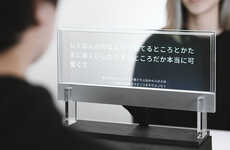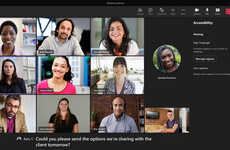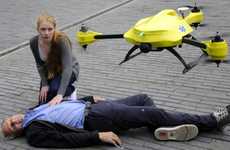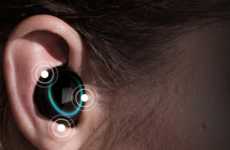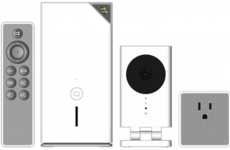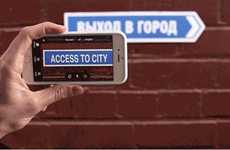
Hands Can Talk Translates Signs Into Speech Using Kinect Sensors
Alyson Wyers — September 30, 2014 — Business
References: facebook & springwise
The Hands Can Talk platform turns sign language into speech in real time, improving communication for deaf and hard of hearing people. From Saudi startup KinTrans, the project uses Microsoft Kinect technology to discern hand gestures and translate it into audible speech for hearing audiences. It was designed as part of the Turn8 accelerator program.
Hands Can Talk is intended for formal speaking events like a lecture where the Kinect sensors are placed in front of the person on stage. After a short acquaintance period, the system can recognize gestures and is able to translate in real time. It can be programmed in a number of languages, including English and Arabic, so it can cross boundaries of language and national origin as well.
Hands Can Talk is intended for formal speaking events like a lecture where the Kinect sensors are placed in front of the person on stage. After a short acquaintance period, the system can recognize gestures and is able to translate in real time. It can be programmed in a number of languages, including English and Arabic, so it can cross boundaries of language and national origin as well.
Trend Themes
1. Real-time Sign Language Translators - Developing real-time sign language translators that use technology like Kinect sensors and machine learning to improve accessibility for deaf and hard of hearing individuals.
2. Multilingual Translation Technology - Creating multilingual translation technology that can translate sign language into audible speech for audiences that speak different languages.
3. Gesture Recognition Systems - Designing gesture recognition systems that can interpret sign language and convert it into audible speech or text in various settings.
Industry Implications
1. Assistive Technology - Creating assistive technology such as real-time sign language translators to help improve access and inclusivity for people with disabilities.
2. Education - Implementing real-time sign language translators in educational settings like lectures and presentations to aid deaf and hard of hearing students.
3. Events and Conferences - Providing real-time sign language translation to ensure accessibility and inclusivity for deaf and hard of hearing attendees at events and conferences.
5.1
Score
Popularity
Activity
Freshness





